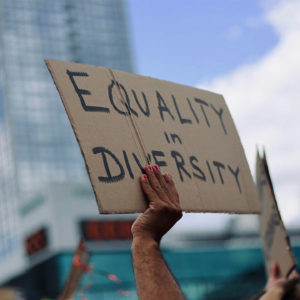
Sally Stapley and Claire Pentecost reveal the ongoing impacts of COVID-19 on family carers of dementia patients. …Read more

Lars Evertsson, Ann-Sofie Henrikson and Charlott Nyman describe the alarming weapon that a smartphone can become when controlled by an abusive partner. …Read more

In this episode, Richard Kemp speaks with Nigel Thrift, author of 'The Pursuit of Possibility: Redesigning Research Universities', about research universities and what makes them different.…Read more

Lee Gregory, co-editor of 'Diversity and Welfare Provision' challenges the notion of citizenship in policy efforts to address inequality. It’s an antiquated notion that implies a norm and doesn’t acknowledge the experience of marginalised groups. …Read more

Daniel Newman, co-author of 'Justice in a Time of Austerity' and 'Experiences of Criminal Justice', explains the recent High Court victory by criminal lawyers over the UK government over legal aid (under)funding. …Read more

Emre Eren Korkmaz, author of 'Smart Borders, Digital Identity and Big Data', considers the use of ‘smart border’ surveillance technology tested on Palestinians for many years and now used in the war on Gaza. …Read more

This briefing, based on the new book Community Work, by Karen McArdle, Sue Briggs, Kirsty Forrester and Ed Garrett, is about how important theory is to policy and practice, especially when we as practitioners are concerned with issues such as poverty and working towards social justice.…Read more

Jardar Østbø, co-author of 'Luxury and Corruption', dispels the myth that Putin is the ultimate enemy of the liberal capitalist order and Navalny its hero. Rather they are the two sides of the same neoliberal capitalist coin. …Read more

Britain’s current postracial perspectives are facile so we need to reconceptualise critical race theory from a British standpoint. In this episode, we talk about postracialism and colourblind narratives with Paul Warmington.…Read more

Alex Stevens, author of 'Drug Policy Constellations' discusses how drug policy actors don’t base their policies on research evidence, but on shared and difficult-to-shift ethical and political commitments. …Read more


